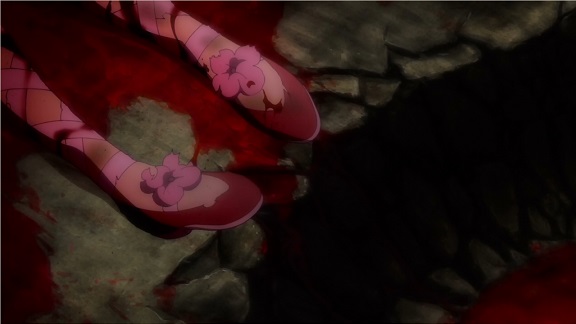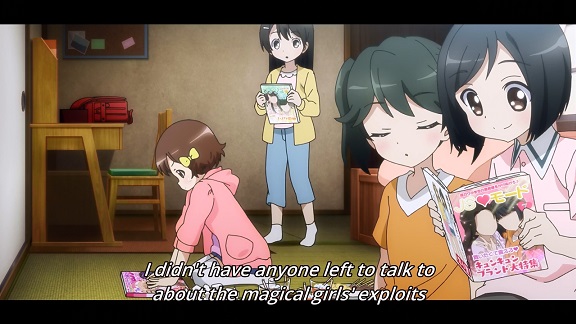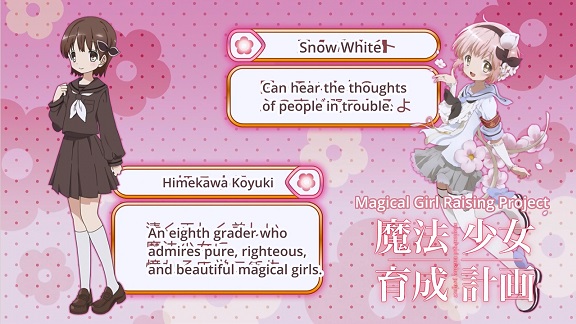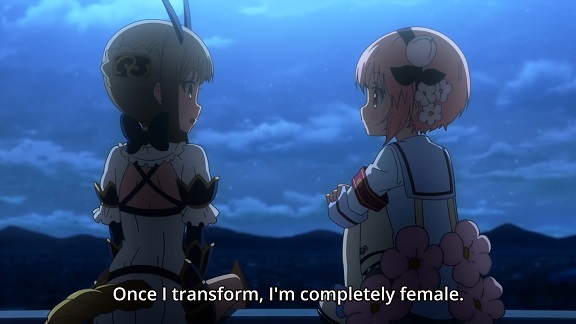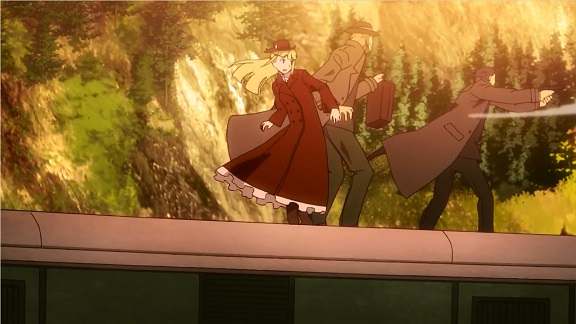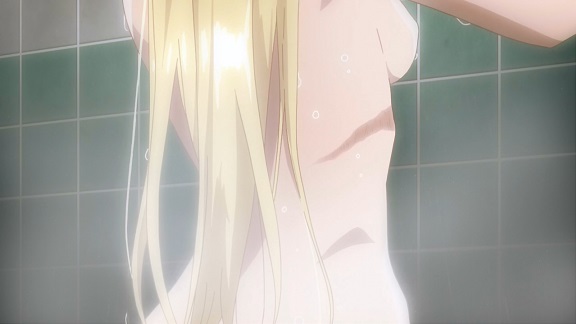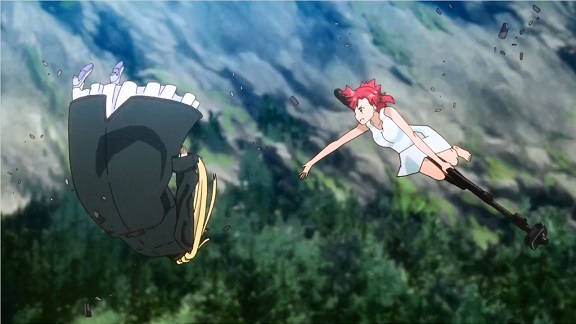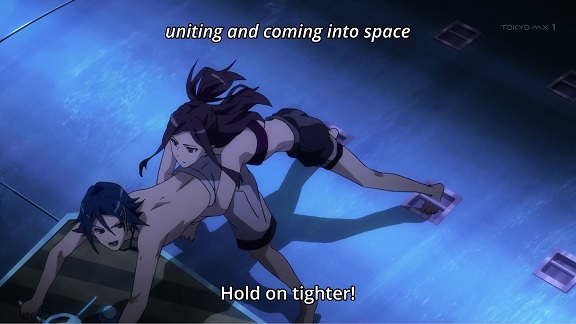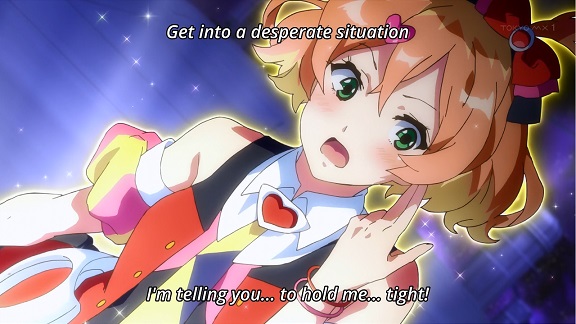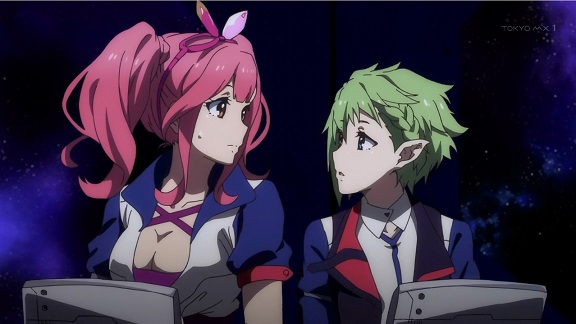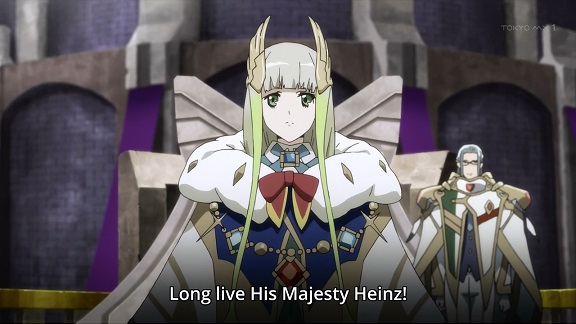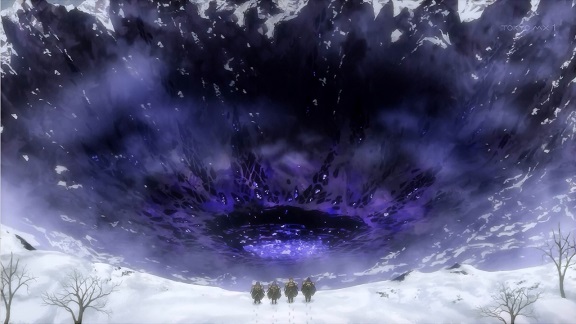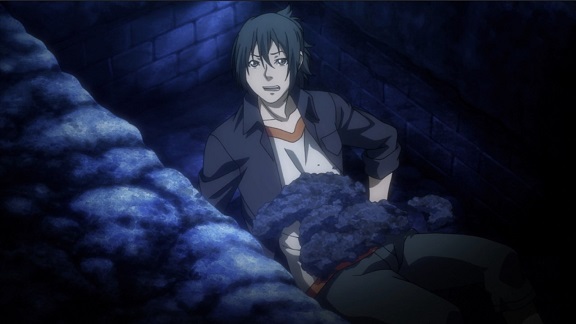Yuri Katsuki carried the hope of all Japan on his shoulders in the Figure Skating Grand Prix, but suffered a crushing defeat in the finals. He returned to his hometown in Kyushu and hid away in his family’s home, half wanting to continue skating and half wanting to retire.
Figure skating is a sport I got into thanks to my late wife, who liked that sort of sport which mixes atlethic with aesthetic concerns, where routines don’t just have to be done correctly, they have to be done beautifully. Not that we were huge fans of it, just that we watched it whenever it was on the Olympics and such. Seeing it in anime form would at least be a novelty, but I didn’t expect too much from Yuri on Ice otherwise. I figured that at best I would get a typical sports anime.
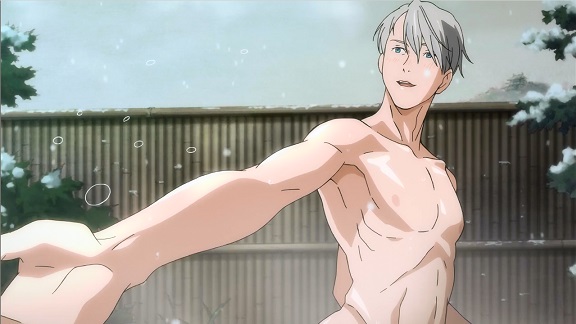
Judging from the first episode, I was wrong. The average sports anime doesn’t star a twentythree year old who already reached the top of his sport, only to find himself not good enough to compete there. The average sports anime doesn’t have a childhood friend who has already married and gotten kids with his rival. It certainly doesn’t have naked, well toned Russian figure skaters. it’s refreshing to have actual adult characters for a change, to not have to go through the usual high school routine of club training montages and Interhighs, to not focus on a naive but talented rookie, but rather deal with somebody who has already experienced both success and defeat.
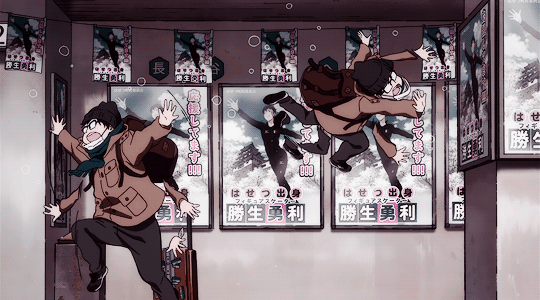
As you’d expect, and can see in the promo video up top, the animation in the skating sequences is beautiful, graceful and elegant, an animator’s showcase. But where it also sparkles is in the humour scenes. The animation gets distorted, kinetic, while the characters (mostly Yuri) devolve into cartoony, semi-chibli forms to better drive the comedy home. But there’s also a real warmth to these scenes, especially once Yuri is back home, something that contrasts well with the coolness (in both senses of the word) of ice skating. Yuri’s family is a little bit goofy, but supportive and it may be embarrassing that his home town has posters of him as the hope of Japanese skating up, but it’s also nice to be appreciated.
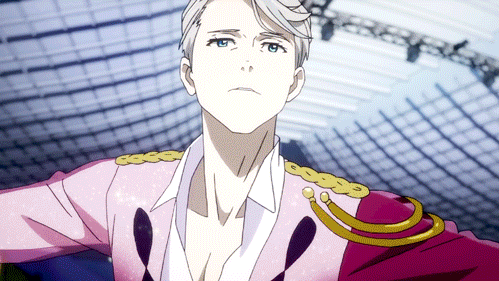
This first episode was all setup and back story, but crucially it didn’t feel that way. The way Yuri’s past came out was handled naturally and it never bored, because it was so unlike what we’re used to from sports anime. He’s not a naive newcomer, he’s already had a taste of the top and he’s already gotten his resolve back to try again. Which means the rest of the series doesn’t have to bother with this and can go straight into the yummy stuff, ice skating routines and providing Tumblr with endless opportunities for slash fiction between Yuri, Victor and Yuri.
